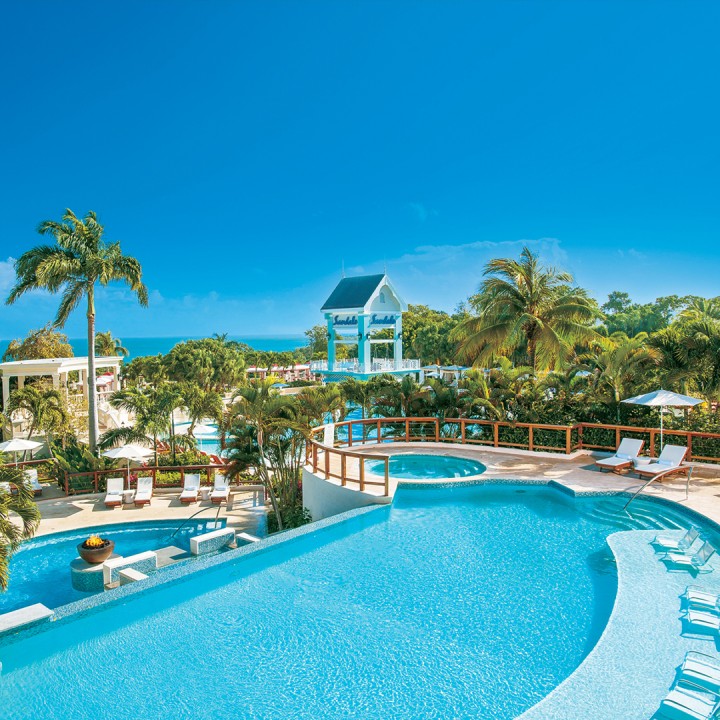: Exploring the Rich Tapestry of Jamaican Curse Words: A Linguistic Journey into Cultural Expression

Language is a powerful tool for communication and cultural expression. In every corner of the world, unique dialects and vocabularies emerge, reflecting the rich history, traditions, and experiences of the people who use them. Jamaica, with its vibrant culture and colorful language, is no exception. In this article, we delve into the intriguing world of Jamaican curse words, examining their origins, cultural significance, and the role they play in shaping the Jamaican linguistic landscape.
The Melting Pot of Jamaican Language
Jamaican Patois, also known as Jamaican Creole, is a fascinating linguistic blend that emerged as a result of the island’s complex history. Influences from West African languages, English, Spanish, and various indigenous dialects have all contributed to the unique linguistic tapestry that defines Jamaican speech. The use of curse words in Jamaican Patois is a dynamic aspect of the language, reflecting both historical struggles and the vibrant spirit of the Jamaican people.
Origins and Evolution of Jamaican Curse Words
To understand Jamaican curse words, one must explore their historical roots. Many Jamaican curse words can be traced back to the time of slavery when enslaved Africans were forcibly brought to the island. As a form of resistance and self-expression, these individuals developed a distinctive language that incorporated elements from their native tongues, creating what is now known as Jamaican Patois.
Over the centuries, the language evolved, incorporating influences from European colonizers, indentured laborers, and other immigrant groups. Jamaican curse words, much like the language itself, have adapted and transformed, becoming a crucial part of the island’s cultural identity.
Cultural Significance
In Jamaican culture, language is more than a means of communication; it is a reflection of identity and a powerful tool for self-expression. Jamaican curse words, while often used in moments of frustration or anger, also serve as a way to assert cultural pride and resist oppressive forces.
These words carry a weight of historical significance, embodying the resilience and strength of a people who endured the hardships of slavery and colonialism. Using these words can be a way for Jamaicans to reclaim their narrative and assert their cultural autonomy in the face of a complex history.
Social Context and Acceptance
While Jamaican curse words are deeply embedded in the cultural fabric, their usage varies across different social contexts. In informal settings, among friends and family, the use of these words may be more acceptable and even considered a form of camaraderie. However, in formal or professional environments, individuals may opt for more conventional language to maintain decorum.
It’s essential to recognize that the interpretation of curse words is subjective and context-dependent. What may be offensive in one culture may be a casual expression in another. Jamaican curse words, within their cultural context, are often viewed as colorful and expressive rather than strictly offensive.
The Art of Creative Insults
One distinctive feature of Jamaican curse words is the creativity and artistry involved in their delivery. Jamaicans are renowned for their wit and ability to craft inventive insults that entertain as much as they express frustration. The use of metaphors, similes, and creative language adds a layer of complexity to the curse words, turning them into linguistic art forms.
The Impact of Globalization
In an era of globalization, where cultures intertwine more than ever, Jamaican Patois and its curse words have gained international recognition. Jamaican music, particularly reggae and dancehall, has played a significant role in spreading the language and its expressions worldwide. Artists like Bob Marley, Beenie Man, and Vybz Kartel have contributed to the global popularity of Jamaican Patois, introducing audiences around the world to the island’s unique linguistic flair.
However, with this global exposure comes a challenge of interpretation. Jamaican curse words, when used outside their cultural context, may be misunderstood or even perceived as offensive. It becomes crucial for individuals to approach the language with respect and an understanding of its cultural roots.
Preserving Linguistic Diversity
As the world becomes increasingly interconnected, there is a growing concern about the homogenization of languages and the loss of linguistic diversity. In this context, the preservation of Jamaican Patois, curse words and all, becomes an important endeavor.
Efforts to document and study Jamaican Patois, as well as initiatives to teach it in educational settings, contribute to the preservation of this unique language. Embracing linguistic diversity allows for a richer tapestry of human expression, fostering understanding and appreciation for the myriad ways people communicate.
Conclusion
Jamaican curse words are not just strings of profanity; they are linguistic expressions deeply rooted in history, culture, and resistance. In exploring the origins, cultural significance, and impact of these words, we gain insight into the complexities of Jamaican language and identity. As we navigate the global landscape, it is essential to approach linguistic diversity with an open mind, respecting the cultural contexts that shape the words we use. Jamaican Patois, with its vibrant curse words and all, stands as a testament to the enduring spirit and cultural richness of the Jamaican people.
-
What are Jamaican curse words?
Jamaican curse words are profane or offensive expressions used in Jamaican Patois, a creole language spoken in Jamaica. These words often carry cultural and historical significance, reflecting the island’s complex history, including the period of slavery and colonialism.
-
Is the use of Jamaican curse words common in everyday speech?
Yes, the use of curse words is relatively common in informal settings among friends and family. However, their usage may vary based on social context, and individuals often choose more conventional language in formal or professional environments.
-
What is the cultural significance of Jamaican curse words?
Jamaican curse words are deeply intertwined with the island’s cultural identity. They can be seen as a form of resistance and self-expression, embodying the resilience and strength of the Jamaican people who endured historical hardships. Additionally, the use of these words is a way to assert cultural pride.
-
How have Jamaican curse words evolved over time?
The roots of Jamaican curse words can be traced back to the time of slavery when enslaved Africans developed a distinctive language as a form of resistance. Over the centuries, the language evolved, incorporating influences from European colonizers and other immigrant groups, shaping the curse words into their present form.
-
Are Jamaican curse words offensive to Jamaicans?
In informal settings, Jamaicans may use curse words as a form of camaraderie and self-expression. However, the interpretation of offensive language is subjective, and individuals may choose to avoid using curse words in specific situations to maintain decorum.
-
How do Jamaican curse words differ from those in other cultures?
Jamaican curse words are unique to Jamaican Patois and reflect the island’s cultural and linguistic diversity. The use of metaphors, similes, and creative language in crafting insults sets Jamaican curse words apart, making them distinct expressions within the broader context of global profanity.
-
Are Jamaican curse words featured in Jamaican music?
Yes, Jamaican curse words are often present in reggae and dancehall music, which have gained international recognition. Artists use these words creatively in their lyrics, contributing to the global popularity of Jamaican Patois.
-
Can non-Jamaicans use Jamaican curse words?
While Jamaican Patois and its curse words have gained global exposure, non-Jamaicans should approach the language with respect and understanding of its cultural context. Misuse or misinterpretation of these words may lead to misunderstandings and could be considered offensive.
-
How can Jamaican curse words contribute to linguistic diversity?
Jamaican Patois, including its curse words, adds to the global tapestry of linguistic diversity. Efforts to document, study, and preserve the language help maintain its unique identity and contribute to the broader appreciation of diverse linguistic expressions.
-
Are there educational initiatives to teach Jamaican Patois?
Yes, there are initiatives to teach Jamaican Patois in educational settings, contributing to the preservation of the language. Embracing linguistic diversity fosters a richer understanding of different cultures and their unique forms of expression.





